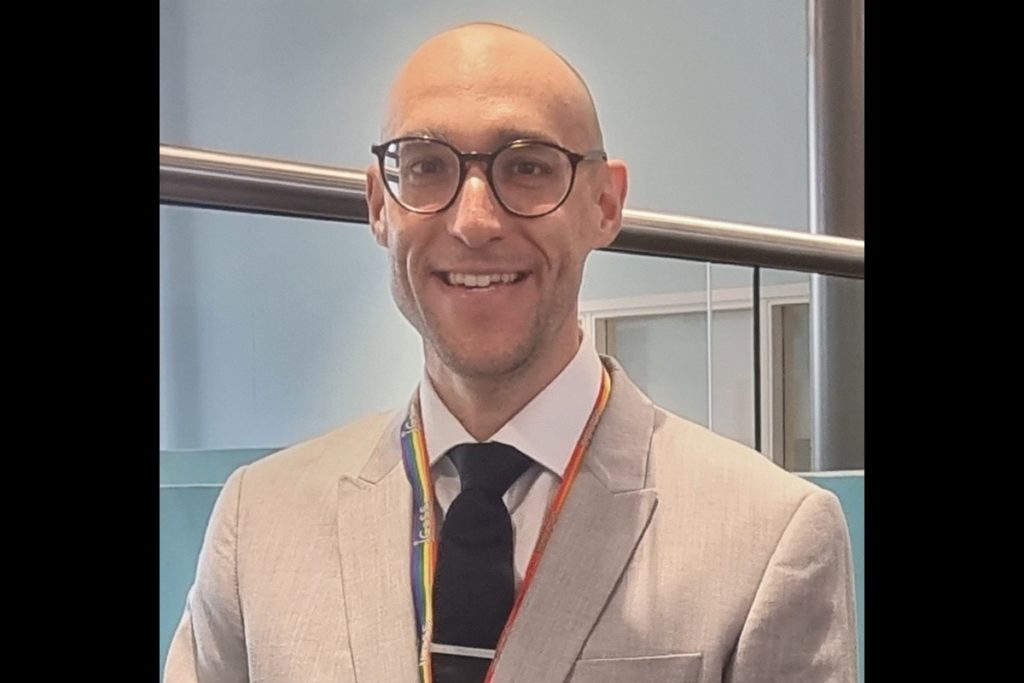The Prizmah Conference
I imagine that it’s rather rare for a group of UK-based Jewish school leaders to be plucked from their day-jobs and sent to the USA on a leadership-learning and fact-finding mission. But in February 2025, that’s precisely what happened. We Lira Winston Fellows, along with the PaJeS team, were ferried across the pond to participate in the Prizmah Conference for Jewish Educators and to visit two US-based Jewish schools.
For those who are unfamiliar with the American Jewish school system, it’s best summarised as follows: a) separation of faith and state, b) privately sponsored, c) fee-based and d) providing for a significant minority of Jewish children educated in the USA, the majority of whom attend what we would consider to be state schools.
The Prizmah conference, which won’t be the focus of this article, was quite something to behold and deserves a nod: a slick operation at a vast Boston hotel, packed-out with 1500 Jewish educators and professionals. All there to learn, teach, network and share expertise in order to keep us at the cutting edge of how to educate our children in and for the 21st Century. There were Principals, CEOs, Doctors, Lawyers, Deans of Israeli universities, Psychologists, Rabbis and, of course, teachers.
Every detail had been considered and the quality of presenters, organisation and programming was exceptional. By way of example (and being mindful that this is being published in the JC) the kosher food was abundant and sensational – lox and bagels with a shmear for breakfast every day – I’m sure you can imagine the rest…
Massachusetts Schools
After the conference, we had the privilege of visiting two of Boston’s Jewish schools: We were warmly welcomed at The Rambam School: a co-ed, Orthodox, all-through school with a distinctly ‘American High-School’ look and about 430 students. Then, after lunch, we went to see Gan Academy: a Pluralist, co-ed, 11-18 school – newer than Rambam and with a beautiful building whose architecture seeks to embody the school’s ethos: lots of open spaces, light and high ceilings – all in a very swish, modern building with cutting-edge facilities and 350 students.
Both schools were inspiring: community schools, with Judaism exuding from every brick and also with a clear commitment to their individual ethos at the heart of all we saw. The lessons we visited, ranging from Nach to Orwell’s 1984 and Native American history, were in-depth and the content was delivered at a high level. The deployment of personnel was notable too – both schools had an extensive infrastructure of leadership, teaching and support staff, which far-eclipses staff to student ratios in the uk. Classes were small and lessons mostly resembled Hollywood portrayals: students sitting at single desks, with the teacher at the front delivering content.
American Teachers
The teachers were fonts of knowledge, experienced, experts in their fields, delivering their subjects with passion and verve. Leaders clearly had time to lead and it seemed that many of the day-to-day responsibilities that occupy school leaders in the UK don’t fall within the US school leaders’ wheelhouses. Whilst most Western schools, including those we saw in the US, care for students’ ever-growing social and emotional needs, it appeared as if our American colleagues had more time and space to focus on the core business of teaching and learning.
This may be because of cultural differences, resources or, indeed, myriad other factors that shape their educational landscape. However, the superior investment in teachers, facilities and studies, both Jewish and Secular, was there for us all to see. It promoted professional expertise, depth of learning, work-life balance and an emphasis on being excellent educators for those bearing the tremendous responsibility of educating those upon whom the future of our community rests.
Who’s Better?
Whilst the aforementioned observations are true, and I must at this point ask forgiveness from any Americans reading this: I think we’re better.
Yes, the pool of teachers from which the American Jewish schools can draw is far greater than ours. Yes, there are more resources per-student than we are able to offer. Yes, there is more time for teachers to teach. But, based on the lessons we saw, what goes on in our classrooms is better. Our expertise lies in our educators’ ability to deliver varied, well-planned, creative lessons. Usually rooted in the latest pedagogical developments and providing a range of education experiences within the classroom to challenge our students and ensure academic rigour and quality learning.
Lessons Learned
The clearest lessons that we Lira Winston Fellows have taken from our trip is the importance of nurturing not only our students, but our teachers too. Teachers are the jewels in our schools’ crowns and we must do all that we can to polish them to a high shine. The deep commitment that our community has to supporting its schools is centuries-old. We must underpin our commitment to learning with a similar level of investment in our teachers to that our American neighbours make.
Benjamin de Jong
Lira Winston Fellow
Assistant Headteacher: KS5
Head of Sixth Form
JCoSS
